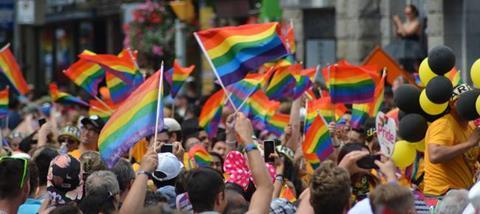Peter Lynas explains why the Evangelical Alliance has written to the government, seeking clarity on a proposed gay conversion therapy ban

The Government has committed to banning conversion therapy.
At first glance, this looks like a simple commitment that Christians and those in the LGBTQ community should agree on. There are horrific stories of electroshock therapy and corrective rape being used to change people’s sexual identity, resulting in heart-breaking incidences of lasting harm.
This is an extremely difficult and emotive issue, but it is important to understand what is at stake. Those lobbying for change don't just want to ban the above practices, but also some types of prayer. Some campaigners would also want to prevent people telling their transformative stories of coming to faith in Jesus. There have even been arguments that Christians shouldn’t be allowed to preach or teach a traditional Christian sex ethic, as that might repress someone’s sexuality.
The problem here, is that the Government has failed to define conversion therapy. The abusive practices noted above are clearly wrong, but they are already banned or illegal. There is a real danger that new laws may end up discriminating against the very people they are designed to help, and undermine individual freedom to choose how to act on your sexual attraction.
Campaign group Ban Conversion Therapy lobbied the Government with the definition of conversion therapy to include: “Any form of counselling or persuading someone to change their sexual orientation or behaviour so as to conform with a heteronormative lifestyle or their gender identity should be illegal, no matter the reason, religious or otherwise – whatever the person’s age.”
This expansive definition risks criminalising pastors and Christians in the everyday practice of their faith. I was recently contacted by a Christian youth leader who recognised that activities he engages in regularly (articulating a biblical view of sex and sexuality) were in danger of being criminalised. Praying for those who are struggling could now become a crime, and he realised for the first time in his life that following Jesus could mean breaking the law.
Consider a woman who experiences same-sex attraction but has chosen to be celibate in accordance with her understanding of biblical teaching. If she shares her story at an event and someone listening is persuaded by her story to follow the same path, she has committed an offence – simply by sharing her testimony.
Or imagine a scenario in which a male friend of mine, married to a woman, is having an affair. If I were to pastor, counsel or seek to persuade him to end the affair, my actions might be an offence depending on who he was having the affair with. If it were a man, it would be an offence because I would have been persuading him to return to his wife and conform to a heteronormative lifestyle. If he were having an affair with a woman, I might be in the clear because his actions have been heteronormative throughout.
Horrific things have been done in the past under the label of conversion therapy. Many were carried out by the state, but the Church must acknowledge its own wrongdoing in this area in perpetuating stigma, discrimination and harm. With respect to conversion therapy, there is much for the Church and the LGBT community to agree on here. Existing laws should be enforced, and practices involving coercion and force should be banned while maintaining freedom of choice and freedom of religion.
Those calling for a ban, and those responsible for drafting any legislation on this issue, must articulate clearly what they want to ban or end. Many of the practices that have been mentioned are already illegal and should be ended immediately. However, people should be free to decide how they want to live their lives and free to choose the support they need. Banning people from sharing their stories, offering counselling or praying for one another is wrong and undermines personal and religious freedom. In fact, it will end up criminalising everyday Christian practice.
Banning people from offering counselling or praying for one another is wrong and undermines religious freedom
The bullish statements from the Government about what they intend to do in this area combined with the lack of clarity on the details and how they are defining conversion therapy have already created a culture of the fear when it comes to prayer ministry and pastoral support. This helps no one, least of all those in need. It is for all these reasons that we have written to the Prime Minister and the Government expressing our deep concerns and seeking clarity




































